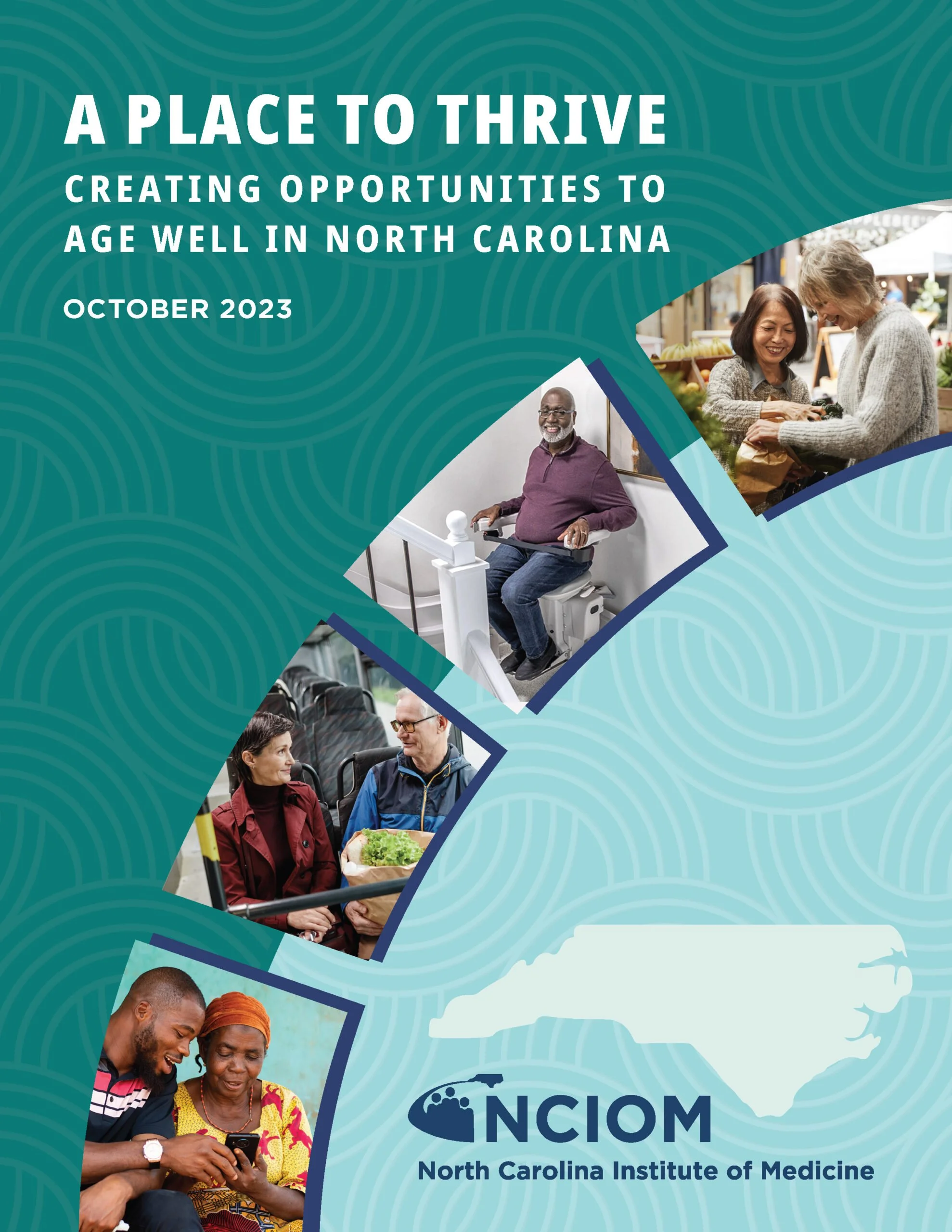New Report Recommends 30 Strategies to Support Healthy Aging in North Carolina
North Carolina’s population is rapidly aging. By 2028, 1 in 5 residents will be over age 65, and by 2038 most North Carolina counties will have more residents aged 60+ than those under age 18. This signifies major changes in the health care needs of our state for which families, communities, medical providers, and policymakers must prepare.
A new report, A Place to Thrive: Creating Opportunities to Age Well in North Carolina, from the North Carolina Institute of Medicine’s Task Force on Healthy Aging recommends 30 actionable strategies for improving social connections, falls prevention, food and nutrition security, and mobility to support healthy aging for all North Carolinians.
The North Carolina Institute of Medicine (NCIOM) was founded in 1983 by the North Carolina General Assembly to serve as a source of non-partisan information and analysis to promote effective health policies focused on improving the health and well-being of the people of our state. The NCIOM largely conducts this work through convening task forces made up of leaders and other involved parties from across North Carolina to better understand and respond to health concerns through policy recommendations.
The Task Force on Healthy Aging was composed of more than 60 members from health care, local and state government, faith communities, aging, academia, and other sectors. The group convened between May 2022 and April 2023 to learn from experts and work together to identify solutions to support the increasing older adult population in our state. The task force identified four key areas of focus for its recommendations:
Improving Social Connections
Falls Prevention
Food & Nutrition Security
Mobility
The new report includes data and analysis to provide context for the healthy aging challenges and opportunities facing our state, as well as detailed recommendations and strategies for decision-makers in sectors including health care, public health, academia, the legislature, housing development, and more.
Among other findings, the report and recommendations of the task force reflect a particular need, especially in light of the COVID-19 pandemic, to invest in the development of communities and homes that provide a safe environment for healthy aging. The task force also took a careful look at the impact of inequities in healthy aging, as North Carolina’s demographics become more diverse as well as growing older.
The NCIOM Task Force on Healthy Aging was led by co-chairs Dr. Tamara Baker, professor in the Department of Psychiatry at UNC-Chapel Hill School of Medicine, and Dennis Streets, former director of the North Carolina Division of Aging and Adult Services. Funding for this work was provided by The Duke Endowment, the North Carolina Department of Health and Human Services Division of Aging and Adult Services and Division of Public Health, and AARP NC. To learn more, download the full report here, or view the recommendations one-pager for a quick overview.

